This Session has closed
TwoCents
Regional blocs like ECOWAS and COMESA that had made progress like taking care of cross border movements are now facing a looming crisis of former colonialist political affiliation. An example is the role of France in ECOWAS, what is the risk of these concerted efforts to build relations with Africa?
Whether regional blocs, like ECOWAS and COMESA, “made progress” is an empirical issue requiring a definition of ‘progress’, and a clear understanding of the objectives of the bloc.
During the late 1950s, African nationalists debated the independence outlook. Among the French colonies – Francophones, Guinea’s Sekou Toure alone insisted on, and was severely punished for, a clean break with France, even as the rest accepted membership to a parliament in Paris, making them provinces with ‘national’ flags and anthems. Meanwhile, the former British colonies – Anglophones – demanded a clean break, but remained in the British Commonwealth chaired by the Queen, only years later becoming The Commonwealth with a rotational chair. The Portuguese colonies – the Lusophones – were not even part of that conversation until their liberation after the mid-1970s.
But continentally. Nkrumah’s Cassablanca Group championed the immediate creation of a United States of Africa (USAf), while the Monrovia Group championed independent individual states. Tanganyikan Nyerere’s compromise was building of strong regional blocs that would eventually merge into an USAf.
Nyerere regionalism was probably influenced by the colonial East Africa Common Services Organisation (EACSO) between Kenya, Uganda and Tanganyika, sharing an airline, central banking, education, taxation, human, plant and animal health research, posts and telecommunications, railways and harbours, etc. Britain refused Nyerere’s demand to delay Tanganyika’s 1961 independence so that it coincides with that of Kenya and Uganda. EACSO became the East African Community in 1966, collapsed in 1977 due to global politics, and was reborn in 1999, currently having six members.
Nyerere also drove southern African liberation through the umbrella Frontline States (FS) against minority rule in Rhodesia, apartheid South Africa and the Portuguese colonies. Apartheid South Africa had various regional administrative arrangements under which it kept tabs on the neighbouring independent but land-locked countries – Botswana, Lesotho, Swaziland, alongside South West Africa (Namibia). The loose-knit FS arrangement became the16-member South Africa Development Cooperation (SADC, born 1992).
A final example is the 15-member Economic Community for West African States (ECOWAS, born 1975): rather than the economy, it was the politics – perennial military coups, that led the regional leaders into seeking a solution, including the obligation to intervene. The Mechanism for Conflict Prevention, Management, Resolution, Peacekeeping and Security of 1999 significantly reduced coups, even if the recent past has seen a resurgence.
So Africa has long-standing experience with regional organisations of differing durations, motivated by divergent circumstances. Regional organisations are a means of overcoming the disadvantages of small political-economies. Whether such organisations have “made progress" requires appropriate analysis.
TwoCents
As a professor in Governance and Public Policy in Kenya what's your take on the current political climate in the country, the lack of credible political opposition, politics of succession and sentiments among the voting population. What can be done to bring about change and avoid the risk of post-election violence?
TwoCents
What does the future of democracy in Africa look like? Is it working for the continent or not?
First, what is ‘democracy’; and what do you want it for? Democracy is not working for Africa, primarily because there is a captive pseudo-middle class which once satisfied by material assets acquired corruptly or otherwise, absconds its role of fighting for true democracy
The continent has diverse claims to 'democracy', operationalized by very divergent constitutions, policies, laws and practices. The focus should be on democracy's quality, rather than its quantity... on good governance [See https://mo.ibrahim.foundation/iiag]
Democracy is not an end in itself, but a means to ‘something’ – human development? The globally ‘accepted’ human development yardstick is the UNDP Human Development Index (HDI) which measures health (longevity/life expectancy), literacy and incomes. Invariably, the Scandinavians do well, despite not being the richest countries globally. But Gadaffi’s Libya had among the highest HDIs on the African continent despite being unapologetically undemocratic; and Rwanda has among the higher HDIs, but it has no freedom of speech, association, etc. [See http://hdr.undp.org/en/content/latest-human-development-index-ranking]
Conversely, Kenya has had a general election every 5 years since independence in 1963, but the national poverty rate is about 26% - 7.6mn in extreme poverty compared to 9mn in 2016. So Kenya’s extreme poverty is reducing, but the political system is not becoming more democratic, as will be evident between now and August 2022 general elections.
Thus human welfare can 'improve' without ‘democracy’; but that
democracy can undermine human welfare.
So, Africa may
have more countries holding elections, and less military governments; but that
does not translate into free choice, democracy, good governance. It might be
better to fight for an improved HDI, and hope that its liberating force instils
democracy... hope that Kagame's successor is less autocratic,but development minded!
TwoCents
Even though poverty is one of the main objectives of the UN SDGs, extreme poverty in Africa is still far from being eradicated, is there a real time-frame for the end of poverty in Africa?
Poverty management is THE objective of the SDGs through a set of 17 ‘interlinked goals… designed to achieve a better more sustainable future for all’. Sweden has consistently had among the highest Human Development Index (HDI) scores, meaning it is among the world’s most ‘developed’ countries; yet its poverty rate has persisted – just under 2% since 1975. So for the foreseeable future, African poverty is unlikely to end.
Fighting ‘poverty’ requires a ‘correct’ conceptualization leading to the ‘right’ strategy, involving relevant inputs, outputs, outcomes and impacts. The output/outcome/impact nexus is important: antibiotics (input) will manage an infection (output); but the wrong dose can also kill useful bacteria (outcome), leaving the patient with new complications (impact).
The SDG framework underscores the need to see poverty beyond the lack money (primarily SDG) to the many others factors determining our quality of life. Thus the capitalist driven by the profit motive will want to produce more in disregard of the consequences; hence SDG 12 reminds us of ‘Responsible Consumption and Production’ – the output/outcome/impact nexus.
The SDGs can be channeled into the UNDP’s Human Development Index (HDI), distinguishing which ones affect incomes, and/or health status/longevity, and/or literacy. A country’s HDI status, and indeed, sub-county HDI status enable focus on the nature/character of poverty, and the consequent determination of what strategies can ameliorate the said characteristics. Which specific SDG targets are best suited to resolve which specific constraints to improved health, literacy and/or incomes? But a monitoring and evaluation component is important that heeds the positive outputs while also ensuring there are no adverse outcomes and impacts. An improved train cargo service is important, but what happens to the hauliers and linked services?
So how do the SDGs relate to poverty reduction? Every Goal and its targets map onto one or more of the three HDI indicators and sub-indicators. As an SDG makes the rich richer, it pulls the poor into less poverty, in the SDG spirit of ‘leaving no one behind’! As a Goal enhances the quality of education, it must also pull people out of ignorance and illiteracy. And reduced income poverty and illiteracy cannot be achieved in an unhealthy population.
TwoCents
Are ‘African solutions’ like Kenya and Ethiopia’s intervention in Somalia any more legitimate or less controversial than other international efforts? Why is Solving DRC crisis not a fundamental priority for African states? How long should can this non- interference hold?
What could ‘African solutions’ possibly be in an increasingly globalized era?
After the 1945 end of the Second World War, the Cold War polarized the world into the East (Second World; communist; Warsaw Pact) and West (First World; capitalist; NATO). At 1945, the majority of today’s ‘developing countries’ were the ‘Third World’, who came together in the Non-Aligned Movement (NAM), designed to take no sides in the Cold War. Yet, Nkrumah’s ‘neocolonialism’ meant that NAM countries were at the mercy of the aggressive capitalist, former colonizer, First World countries, what with their political elites being products of the colonial system.
The Cold War’s collective security raised temperatures, but also deterred the crossing of the Rubicon. Thus, the major Cold War protagonists – USA and USSR, later Russia – have avoided each other, merely fighting smaller proxy wars.
Meanwhile, the UN has been conscious that want – poverty, can fuel instability and war, as do cross border disagreements. Thus, against the backdrop of the UNIVERSAL Declaration of Human Rights (1948), UN peace keeping has focused as much on improving human welfare; hence the Millennium Development Goals (2000-15: MDG) and Sustainable Development Goals (2015-30: SDG). MDG 8 and SDG 17 are about global technical and financial cooperation over the other seven MDGs and 16 SDGs. Thus investing in human welfare for peace and development is a global responsibility.
But the UN has also focused narrowly on conflict via the Security Council, and through the Secretary General’s UN Peace Keeping Forces (UNPKF) – the Blue Berets. Countries volunteer soldiers for specific engagements, six of the current 12 being in Africa. In 2004, Sudan objected to UNPKF in Darfur, and in the context of AU’s strategic Silencing the Guns by 2020, the UN Security Council approved the African Union Mission to Sudan in Darfur, eventually replaced by a UNPKF mission in 2007. The AU’s other peacekeeping initiative is AMISOM – Somalia, launched in 2007. The nine-country AMISOM has been funded by the UN, AU, and controversially by EU. The two examples illustrate that African initiatives are not that African.
Beside UN’s general endeavour for
peace, the AU initiatives are driven by the knowledge that failed states become
breeding grounds for civil war, terrorism and other unrest. Thus even though
the peacekeepers have been African soldiers, the weight behind the initiatives could not sustainably be African.
Some of the nine countries contributing AMISOM forces have indeed threatened to, or actually withdrawn some forces because EU reduced the monthly stipend from USD 1,000 pm to USD 800 pm. That smacks of mercenarism rather than a bona fide commitment to a cause.
TwoCents
Terrorism in Africa has been rising sharply over the decade. How has terrorism impeded development in Africa?
‘Terrorism’ is a maligned term assigned to non-State actors with a real or imagined political, social or religious grievances against their own State and/or citizens, and resort to violent means of publishing that grievance with or without the possibility of resolving it. It is important to ‘unpack’ that definition to understand what it says, and equally importantly, what it does not say. This latter factor is important for whether or not terrorism impedes ‘development’.
‘Maligned’ term because one person’s terrorist might be another person’s freedom fighter. The global tendency is to ostracise ‘terrorists’: but what happens if they become the bona fide government of a territory. Recent history abounds with such examples, from Castro’s late 1950s Cuban revolution to the many African liberation movements (1950s-1970s), to Palestine’s PLO, and most recently, Taliban in Kabul. ‘Terrorist’ likely over-focuses on “unlawful” while ignoring an arguably legitimate end. Nonetheless, there are terrorists, like Boko Haram, criminals without a legitimate cause who turn against the very civilians they purport to fight for.
Development is primarily about human beings, and only secondarily about the contexts they live in – useful investments in bright city lights, sky scrapers, fast trains, etc. For the UNDP’s Human Development Index (HDI), ‘development’ emphasises whether better health is drives longer, satisfying lives; whether literacy enlightens for health securing lifestyles; and incomes and livelihoods expand opportunities to enlightenment and health.
So, can, and does the activist, violent phase of terrorism deter development? Yes, it can and does; but it is impudence to blame Africa’s widespread low HDIs – lack of development - on terrorism. While many African countries currently host some civil unrest, few have a full-fledged terrorist conflicts. But many African countries’ political and economic classes perpetually terrorise their citizens, leeching them through extortionist taxes, while denying them the basics that foster improved health, literacy and incomes. Instead of using State resources to address the grievances undermining development and fostering unrest, some of the rich actually sponsor the violence as a camouflage for looting and raping of citizens and the economy.
So who is the terrorist?
TwoCents
The issue of capital flights in regard to Africa has been dominant, resources leaving the continent that needs resources given the resources the most, yet, Africa is not fully integrated into the globalized economic system, what is the source of these capital flights? Is it kleptocracy? Volatile investment flows? What is driving it?
I don't know much about national and international capital markets, but I suppose they work on the basis of market dynamics and equilibria that determine returns to capital. The underlying issues must be: (i) Who has the investable capital? (ii) Where did they get it from? And (iii) Where can they get the greatest return.
‘Capital flight’ suggests illegal movements of monies involved; yet this is not necessarily so. The monies involved may be quite clean. So why do the money owners ship it abroad? The simple answers must be that the home market is unfavourable, especially if the money was acquired illegally or illegitimately, or that the money is genuine, but the market offers comparatively unattractive returns.
Social media reports claim a Kenyan public utility executive picked from USD 24,000pa public university lectureship, acquired USD 11.29mn worth of real estate and top-end vehicles during a single five-year tenure. If such are corruption proceeds, then it is reasonable to assume an internal network that has fleeced the utility of multiples of these amounts during the utility’s management musical chairs since the 1990s. Several such managers have been indicted, but cases remain undecided 30 years on, inducing further financial malfeasance. Local banking of such monies raises questions; hence capital flight.
But capital flight also occurs in the corporate sector, where companies simply decide to invest elsewhere. When monetary policies impose caps o capital movement, then such corporates adopt methods such as transfer pricing between subsidiary and affiliated companies, and over invoicing whereby foreign prices are inflated. These practices enable shipping more money out of the country than is necessary for the official acquisition being undertaken, the surplus being ‘banked’ with an accomplice.
Some of these formal and informal money laundering transfers enable domestic tax evasion, and complicating any central bank’s money regulating role. While developing country money markets are not fully integrated into the global money markets, individual players on the global market are only too glad to receive extra money that strengthens their competitiveness.
The more domestic money markets espouse international money management standards, the more they should control against capital flight. However, domestic money markets cannot sustainably adopt international standards if the rest of the economy is not on board. National elites legally banking in off shore accounts, attract others to do the same.
Interestingly,
capital flight destinations - for flights sake as opposed to business
investment, are often very small economies, such as Seychelles
(population 100,000) and Mauritius.
TwoCents
Leadership in Africa since independence has been a total failure, is Africa entirely responsible for this sad fact? Do you have any policy ideas that can be implemented to resolve this problem? Are there any countries in Africa that are eliminating this kind of political dysfunction and bad governance?
Whether African independence era leadership is a total failure depends on what yardstick is applied. A widely acceptable yardstick asks what such leaders aspired for at independence. Colonialism focused on effective expropriation, investing minimally only in functional Africans for expropriation, while ignoring the general human condition. Consequently, African nationalists’ 1950s campaigns for self-determination promised to eradicate poverty, ignorance and disease (PID). Interestingly, UNDP’s 1990 Human Development Index (HDI) focused on the same three areas.
Into independence, some leaders fought the PID scourges; but others fanned their flames. Some pursued ‘socialism’ and failed to the delight of the West; others pursued ‘capitalism’ and failed, despite support from the West. The intellectual and visionary socialist Nkrumah failed for being… well, too intellectual and visionary at a time the soldiers wanted a ‘pragmatist’... The similarly intellectual but pragmatic Nyerere failed for trying to build socialism without socialists.
Conversely, vacuous Mobutu – with CIA – killed socialist Lumumba to perpetuate the imperial hegemony of Congolese mineral wealth, thereby stagnating African welfare. In Kenya, alleged Mau Mau fighter Kenyatta greatly admired the expansiveness of settler agriculture, became both a neo-settler and neo-Governor, turning his back on the Mau au and ordinary Kenyans. Both primitive accumulators to the hilt, Mobutu and Kenyatta defended, and were defended by western capitalist interests, never threatened by the sea of military coups surrounding them.
Africa has had coups by the hundreds, many fueled by youthful misadventure. Other coups had substantive grievances, and transformed countries. At the time of Gaddafi’s 2011 assassination, Libya’s HDI stood at 0.773 – 5th highest in Africa, despite US-led embargoes against Libyan oil; but has dropped to 0.724 in 2021. Meanwhile, wealthy Congo DRC’s HDI has risen from 0.369 in 1990 to 0.480 in 2019.
So the yardstick is important for gauging African failure or successes. Many failed for being non-starters; others for environmental reasons: Nyerere’s Tanzania paid a heavy price for the independences of Mozambique, Angola, Namibia, Zimbabwe and South Africa. Others still failed because of their ‘stomachs’. But the continent has myriad success stories over poverty, ignorance and disease: after all, the continental HDI average has risen from 0.42 in 2000 to 0.55 in 2019.
TwoCents
What do you think about the intra-regional multilateral frameworks for Africa e.g., AfCFTA, NEPAD? Do you think they are effective? What are some of the challenges and opportunities that may arise from these frameworks?
TwoCents
The future of International Law in Africa - why do we still depend on western court systems (ICC and ICJ) to address challenges confronting the continent? What could be the way forward for the Africa?
Similar sessions







Hello Prof, read the interview sections and it was intensely enlightening.
I’m a ogeyi Onah 2 year student of Law at the university of calabar I'd like to know how much influence the youths have in peace building in Africa and how the government can activate the involvement of the youth in government
African youth start from a difficult position in belonging to culture that venerate age, i.e. patrimonialism. African women are also in a similar quandary because of patriarchy: the man is the head of the household. So, while both the youth and the women are majority population categories in relation to the respective groups standing against them, they cannot muster the numbers to exploit their respective potential.
On peace building, the way to go about identifying the role of the youth is to ask what the causes are of the lack of peace. Who/what is creating unrest and war, and why? The AU had committed to silencing the guns by 2020; so the question to ask is: what was driving the guns? What had been strategised for their silencing? What was actually done to silence them? And what was achieved? That would be a suitable stating point for an assessment of the youth's potential...
But unfortunately, the youth have likely lost an idealism for change, and are captive of standards set by the older generation. The East African Institute's 2016 Kenyan Youth Survey Report found that more than half the respondents saw nothing wrong with evading taxes or taking bribes, as long as one is not caught. Making money "by hook or crook" was acceptable to 47%, and 40% would vote for a politician who paid for their vote!
While that is not the standard picture of the African youth, it screams that we should not treat the African youth like some undifferentiated whole: after all, even fueling conflict is a money-making enterprise the youth might just want a stake in!!!
As I suggest above, this appeal to/for an African agenda is grand romanticism, not real politik. We know from theory and from empirical studies that top-down trickle-down approaches are unlikely to solve Africa's fundamental problems of poverty, illiteracy and disease. A look at AU for instance, suggests we are too focused on being like the UN, instead of recognising our resource constraints and cutting our suit according to our cloth.
But beyond that continental body, what is the value addition of the 12-odd bodies duplicating activities across the continent? Eight of the 15 ECOWAS countries belong to UWEMOA, the only divide being that the latter are Francophone. Among SADC's 15 members, 4 belong to SACU, and 8 belong to COMESA. Some of these countries belonging to multiple organisations, paying millions in membership fees, cannot even feed their people at home!
Good governance requires prudent management of government. The richer countries of Europe have a single primary membership body, EU...and NATO if you like. So why do we allow France to sponsor UWEMOA as a means of dividing ECOWAS?
African countries are burning money they do not have in such organisations; but they also burn money internally through corruption. The bottom line is the failure of good governance on the continent.
If Africa had not been colonised, I wonder where we would be today!!! Yet, given the globalised nature of the planet, I do not even see how that issue arises: today one can talk of neutral states, but in those days, a territory either colonised or was colonised on encounter. Technological advancement defines what is 'better off', i.e. where people want to go... and colonisation set us off towards that better-off. But that 'better-off' is a dynamic situation, and tenure among the 'best-off' - whatever the globally accepted measure, this is a game of musical chairs with tenure changing with changes in various situations. This dynamism also applies among the developing countries which belong to the lower echelons of the better-off ladder, aspiring to haul themselves up it. So colonialism was a necessary evil... While some of our founding fathers (sic) appreciated in the evil in - averse effects of - colonialism, they were up against those leaders who did not see that evil, and the mighty, white-washing force of neo-colonialism. Africa missed an opportunity to unite in the late 1950s and early 1960s. The colonialists and ex-colonialists divided and ruled: they convinced most individual African 'nationalists' that their best interests lay in going it alone. Contemporary pleas for African unity are mere nostalgic romanticism: corporate forces are more powerful that those of political idealism. That is the greatest adversity inherited from colonialism.
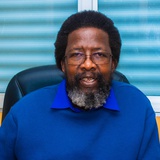
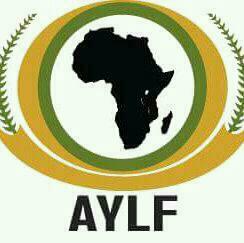
 1681
1681
 3
3

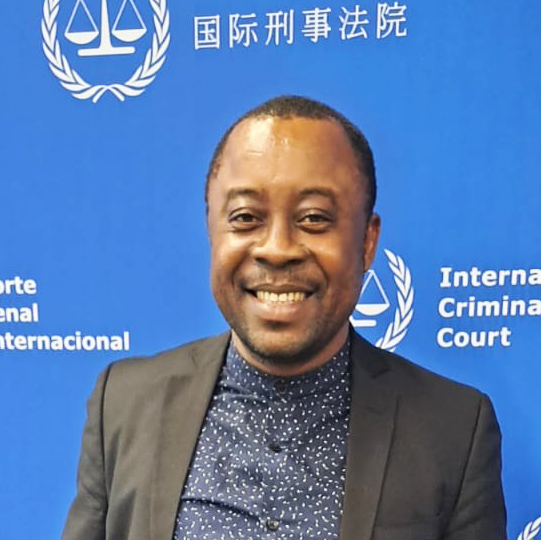





 Share this session
Share this session





 Calabar, Nigeria
Calabar, Nigeria










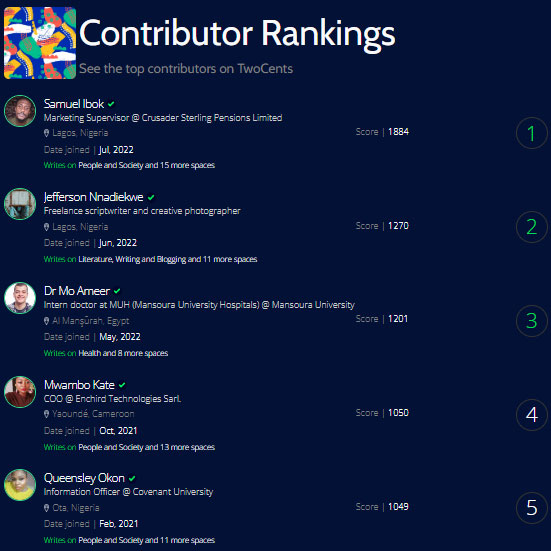






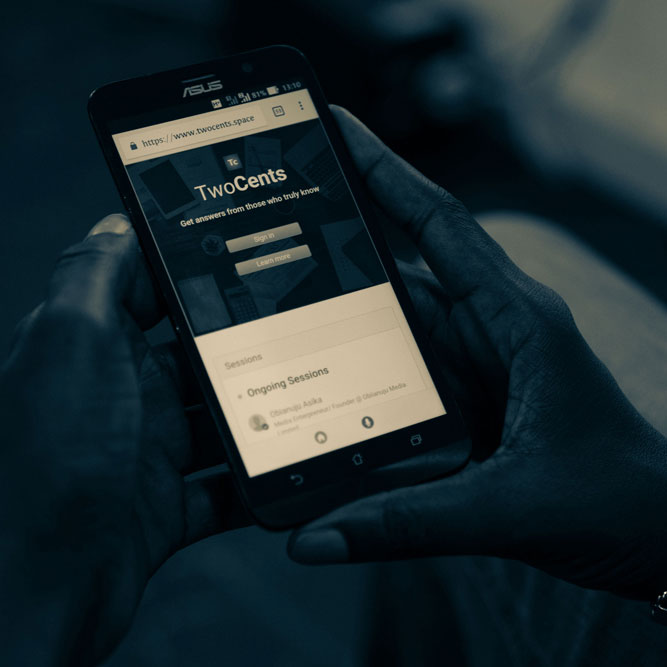






















Comments